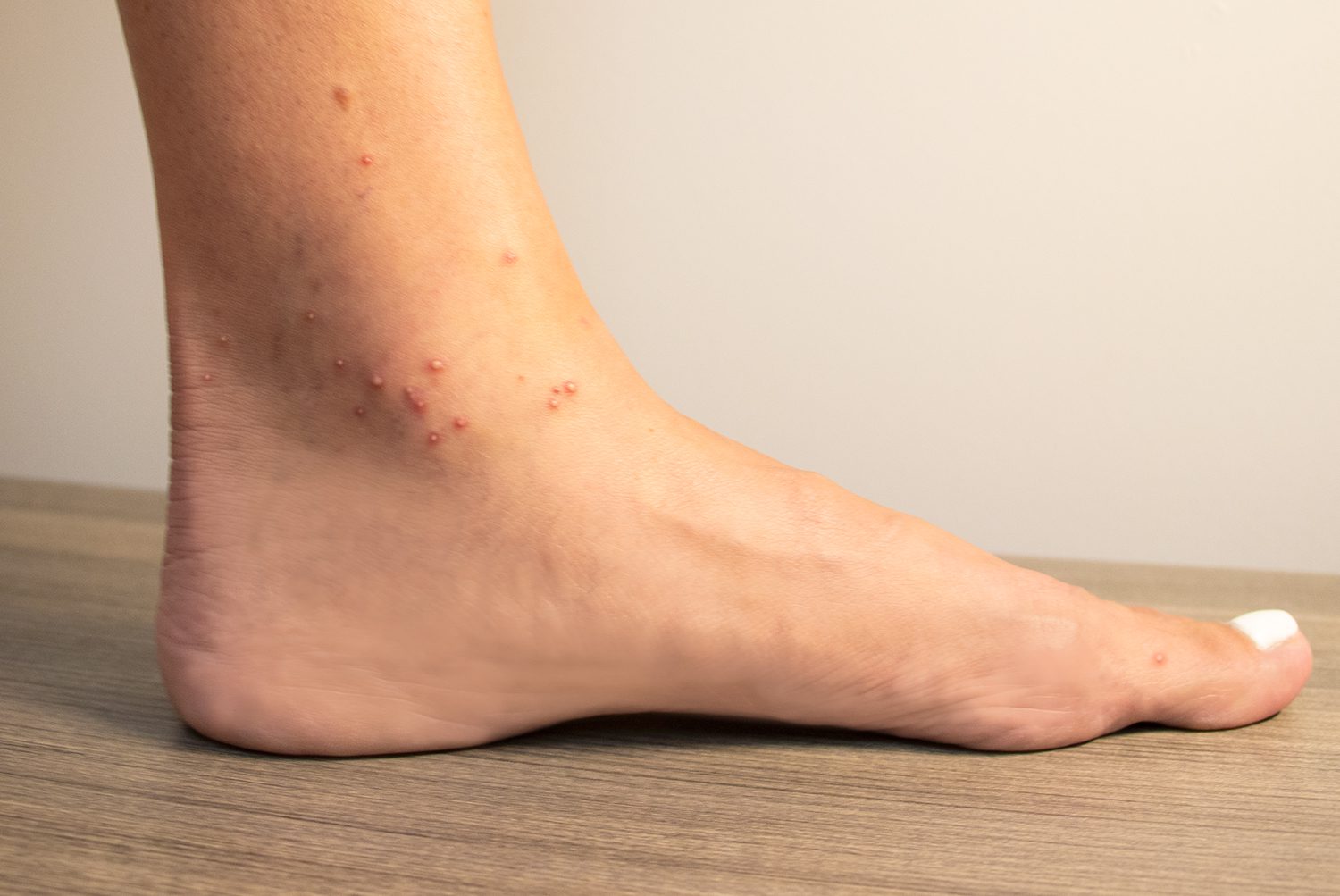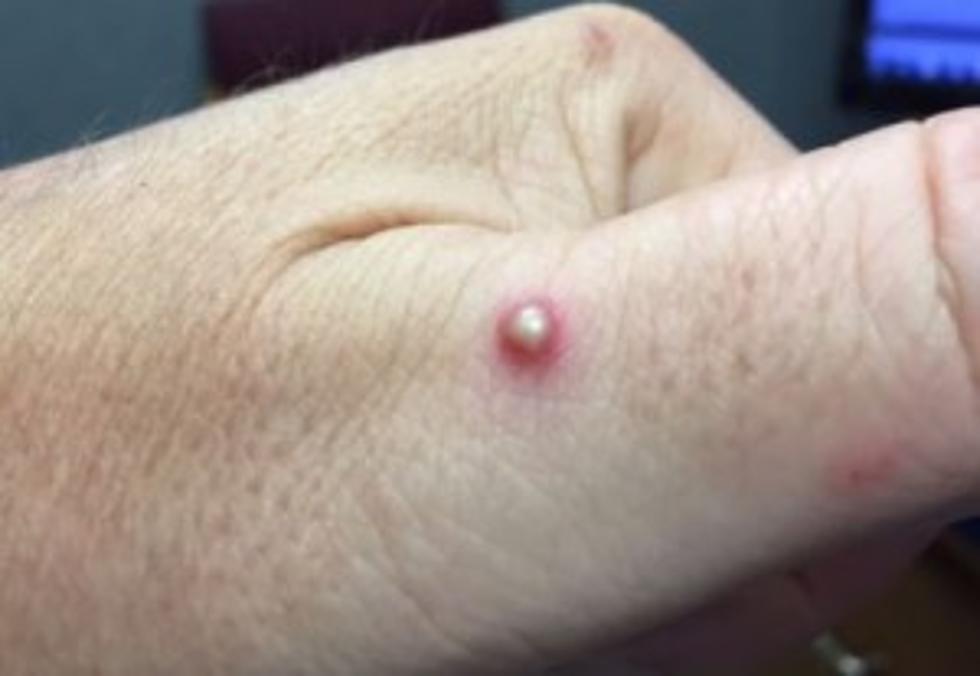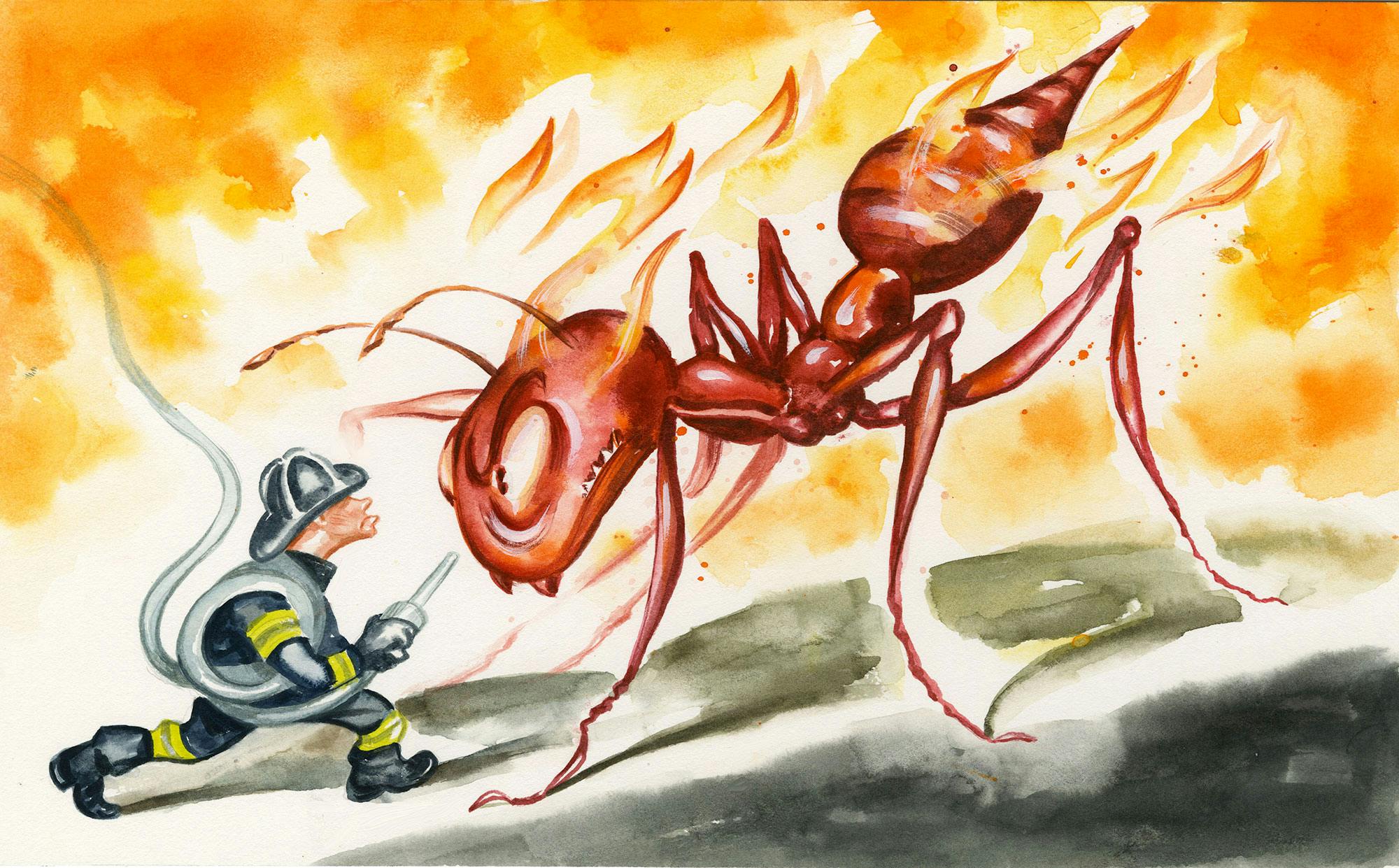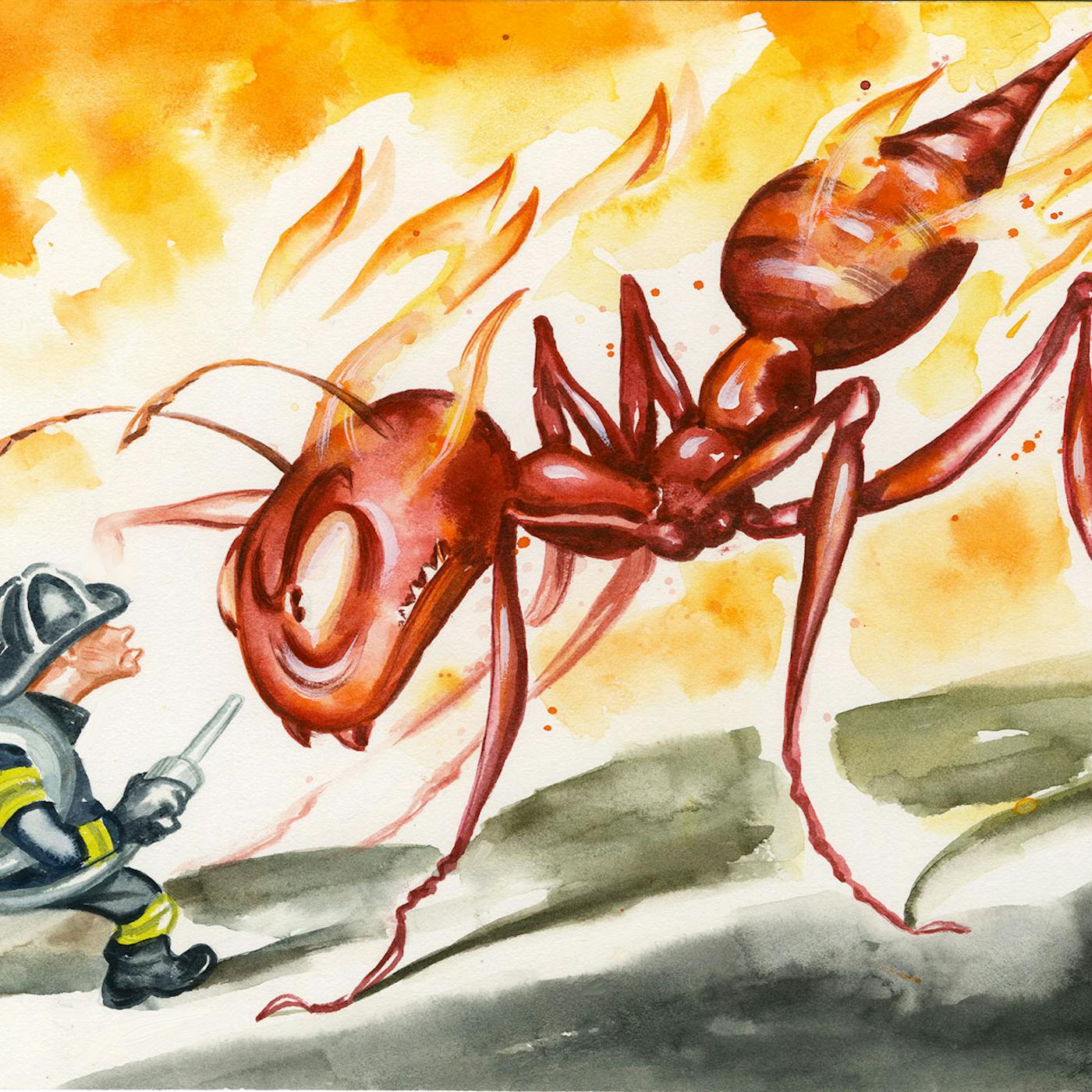No, you are not supposed to squeeze ant bites. Squeezing ant bites can lead to infections as it creates an open wound that allows bacteria and germs to enter your body.
Pop the blister.

Credit: www.conwaymedicalcenter.com
Exploring Ant Bites
Ant bites can range from being mildly irritating to potentially dangerous, depending on the type of ant and the individual’s reaction. Understanding the different types of ant bites is crucial for effective treatment and prevention. Some common types of ant bites include:
- Fire ant bites
- Carpenter ant bites
- Red ant bites
- Black ant bites
Recognizing the signs and symptoms of ant bites can help in early identification and treatment. Common signs and symptoms of ant bites include:
- Redness and swelling at the site of the bite
- Pain or itching
- Pus-filled blisters
- Localized allergic reactions
Treatment Options
When dealing with ant bites, it’s important not to squeeze or pop the blister as it could lead to infection. Allow the bite to heal on its own to avoid complications like bacterial entry. Stick to treating it with gentle care for optimal recovery.
Should You Pop Ant Bites?
If you have been stung or bitten by an ant, you may be wondering if it is safe to pop the resulting blister. However, it is important to resist the temptation to squeeze or pop the blister. Popping the blister can create an open wound, making it easier for bacteria and germs to enter your body and potentially lead to an infection. It is best to leave the blister alone and allow it to heal on its own.Home Remedies For Ant Bites
While it is important to avoid popping ant bites, there are several home remedies that can help alleviate the discomfort and itching associated with them:- Apply a cold compress: Placing a cold compress or ice pack on the affected area can help reduce swelling and provide temporary relief from itching.
- Use over-the-counter creams or ointments: Topical creams or ointments that contain ingredients like hydrocortisone or calamine can help soothe the itching and reduce inflammation.
- Take an antihistamine: Antihistamine medications can help alleviate itching and reduce allergic reactions caused by ant bites.
- Cleanse the area: Gently washing the affected area with mild soap and water can help prevent infection.
- Avoid scratching: It is important to refrain from scratching the ant bite, as scratching can lead to further irritation and potential infection.
Prevention Techniques
When dealing with ant bites, avoid the temptation to squeeze or pop the blister as it can lead to the risk of infection. It is best to leave the bite alone to heal on its own, and take measures to avoid further insect encounters to prevent future bites.
Avoiding Ant Bites
Preventing ant bites is the best approach to avoid the discomfort and potential risks associated with them. Here are some simple tips to avoid ant bites:
- Keep your surroundings clean and free of food crumbs or spills that may attract ants.
- Seal any cracks or openings in your home to prevent ants from entering.
- Cover food and keep it stored in airtight containers to avoid attracting ants.
- Dispose of garbage regularly and make sure trash cans are tightly sealed.
- Avoid walking barefoot in areas where ants are commonly found, such as grassy fields or gardens.
- Be cautious when exploring nature or hiking in ant-infested areas.
Protective Measures Against Ant Bites
In addition to avoiding ant bites, taking protective measures can further minimize the risk of getting bitten:
- Wearing appropriate clothing, such as long sleeves and pants, to cover exposed skin.
- Applying insect repellent to exposed areas of the body, following the instructions on the product label.
- Using ant baits or repellents near your home to deter ants from entering.
- Creating physical barriers, like applying petroleum jelly or double-sided tape, to prevent ants from crawling onto surfaces.
- Keeping outdoor areas well-maintained and eliminating ant colonies by seeking professional pest control services if necessary.
By following these prevention techniques and protective measures, you can significantly reduce the chances of experiencing ant bites and the discomfort they bring. Remember, prevention is always better than cure when it comes to dealing with ant bites!

Credit: 973thedawg.com
Debunking Myths
Myths about squeezing ant bites have been pervasive, often leaving people confused about the best course of action when dealing with these bites. There are various misconceptions surrounding the treatment of ant bites that have led to confusion and misinformation. In this article, we aim to debunk these myths and provide clarity on the most effective approach for treating ant bites.
The Dangers Of Squeezing Ant Bites
Squeezing ant bites can lead to more harm than good. Many people mistakenly believe that squeezing the bite will release the venom and provide relief. However, this action can actually cause the venom to spread further into the skin, potentially worsening the reaction and leading to increased inflammation and discomfort.
Facts Vs. Fiction About Ant Bite Treatment
There are several myths surrounding the treatment of ant bites that need to be addressed:
- Myth: Popping blisters from ant bites helps in the healing process.
- Fiction: Popping blisters can lead to infections and prolonged healing times.
- Myth: Squeezing ant bites allows the venom to escape, alleviating pain and discomfort.
- Fiction: Squeezing can actually spread the venom and exacerbate the reaction.
- Myth: Scratching ant bites can provide relief from itching.
- Fiction: Scratching can lead to bacterial infections and worsen the itching sensation.
It is important to separate fact from fiction when it comes to treating ant bites, as following misinformation can lead to unnecessary discomfort and potential health risks. By understanding the truth behind these myths, individuals can properly manage ant bites and minimize their impact on overall well-being.
Expert Recommendations
To prevent infection, it is advised not to pop or squeeze ant bites. Popping a blister can create an open wound that allows bacteria and germs to enter the body, increasing the risk of infection. It is best to leave the bite alone and let it heal on its own.
Medical Advice On Managing Ant Bites
Consider professional medical care for severe ant bites, especially if experiencing symptoms beyond redness and minor swelling.
First Aid Procedures for Ant BitesFirst Aid Procedures For Ant Bites
Clean the bite area with soap and water, apply a cold compress to reduce swelling, and monitor for signs of infection such as increased redness or pus.

Credit: www.texasmonthly.com
Frequently Asked Questions Of Are You Supposed To Squeeze Ant Bites
Should I Drain An Ant Bite?
Do not drain or pop an ant bite blister. Popping the blister can lead to infection as it creates an open wound for bacteria and germs to enter your body. Leave the blister alone and it should heal on its own.
Should You Squeeze The Pus Out Of An Ant Bite?
Avoid squeezing the pus out of an ant bite to prevent infection. Let it heal naturally.
Is It Bad To Squeeze Ant Bites?
It’s not recommended to squeeze ant bites as popping blisters can lead to infection from bacteria and germs entering your body.
Why Does My Ant Bite Look Like A Pimple?
Ant bites can resemble pimples because they often result in pus-filled blisters that look similar.
Conclusion
When dealing with ant bites, it’s best not to squeeze or pop the blisters. Doing so could lead to infections as it creates open wounds. It’s important to resist the temptation to pop the blisters, and instead, allow them to heal on their own to prevent any potential complications.
Treating ant bites with caution can help minimize the risk of further complications.

I’m MD Tanvir, and I bring years of expertise gained from working closely with pest control companies to the forefront. My journey in the industry has inspired me to launch Bug Battler, a platform aimed at equipping people with the know-how to combat pests autonomously. Through Bug Battler, I aim to empower individuals with practical insights to tackle pest infestations effectively.

